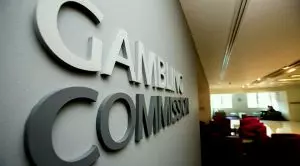 The middle of the week saw the UK Gambling Commission (UKGC) issue a statement to reveal that gambling operator TGP Europe Limited was ordered to pay a monetary penalty estimated at £316,250 due to a bunch of social responsibility (SR) and anti-money laundering (AML) failures.
The middle of the week saw the UK Gambling Commission (UKGC) issue a statement to reveal that gambling operator TGP Europe Limited was ordered to pay a monetary penalty estimated at £316,250 due to a bunch of social responsibility (SR) and anti-money laundering (AML) failures.
The operator, which operates a total of 19 website platforms targeting British customers, also received some additional licence conditions it would be required to stick to, and an official warning from the country’s gambling regulatory body. As explained by the Gambling Commission, the additional licence conditions that would apply to the company’s operating permit have been imposed in order to make sure that TGP Europe Limited would make sure its officers conduct the required thorough and in-depth due diligence checks.
In the sanction decision issued as a result of the operator’s violations on February 22nd, 2023, the UKGC also reminded the obligations to all operators who enter so-called white-label partnerships.
Several RS and AML Failures Found during the UKGC Investigation
 As unveiled by the UK Gambling Commission, TGP Europe Limited was found to have failed to comply with some social responsibility and anti-money laundering rules and regulations.
As unveiled by the UK Gambling Commission, TGP Europe Limited was found to have failed to comply with some social responsibility and anti-money laundering rules and regulations.
In its statement announcing the financial penalty against the operator, the UKGC shared that the company’s social responsibility failings included its lack of assessment of the effectiveness of its customer interactions or the potential need for additional steps to be taken to prevent consumers from gambling-related harm. TGP Europe Limited was found to have allowed customers to continue to gamble even after a large number of safer gambling alerts occurred with no intervention from the company’s staff whatsoever.
The gambling operator also relied on automated interactions with customers when players hit safer gambling alerts.
Several anti-money laundering failings also occurred in TGP Europe Limited’s operations. The UK Gambling Commission found that the company lacked a terrorist financing and money laundering risk assessment to address potential risks adequately, including the provision of false or stolen IDs, and identification of risks associated with unusually large or complex transactions. The gambling company’s due diligence policies and procedures linked to white-label agreements were found to be ineffective. Apart from that the UKGC investigation also found that the operator failed to adequately consider and mitigate the existing money laundering risks faced by its B2B relationships.
TGP Europe Faced Warning, Monetary Fine and Additional Licence Conditions for Its SR and AML Failings
 The UK gambling watchdog revealed that the sanctions against TGP Europe Limited were imposed after a series of reviews of the company’s operating permit.
The UK gambling watchdog revealed that the sanctions against TGP Europe Limited were imposed after a series of reviews of the company’s operating permit.
The review of the gambling operator’s licence found a number of failures in terms of social responsibility and anti-money laundering rules and regulations. The UK Gambling Commission found that the licensee violated paragraphs 1 to 3 of its licence condition 12.1.1, under which it is required to take all necessary measures to prevent money laundering and terrorist financing, and licence condition 12.1.2, which sets out the measures that gambling companies based in foreign jurisdictions are supposed to take to protect their operations and customers.
Apart from that, TGP Europe Limited also failed to comply with the social responsibility code of practice (SRCP) 3.4.1 in regard to interaction with consumers and with the Ordinary Code provision (OCP) 2.1.1 that provides guidance on anti-money laundering and its prevention.
As mentioned above, the gambling company faced an official warning under section 117(1)(a) of the UK Gambling Act 2005, the attachment of additional licence conditions under section 117(1)(b) of the Gambling Act 2005, as well as a monetary fine worth £316,250 under section 121 of the same Act. The aforementioned measures were imposed in line with the Licensing, compliance and enforcement policy statement of the UKGC, the Statement of principles for determining financial penalties, as well as the Indicative sanctions guidance.
The UK regulator noted that when determining the measures against the company, it took into account the fact that the Licensee cooperated with the investigators and took corrective steps to address the identified failures.
- Author


